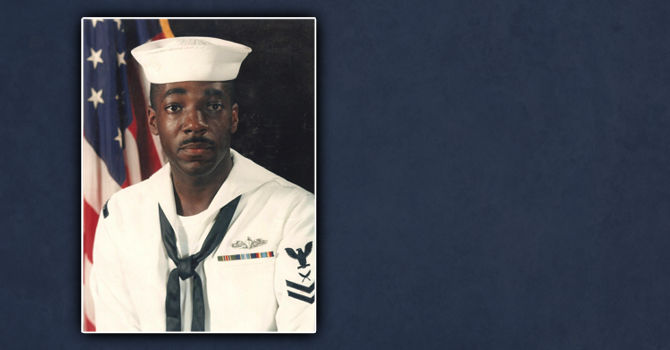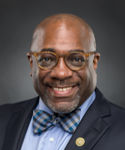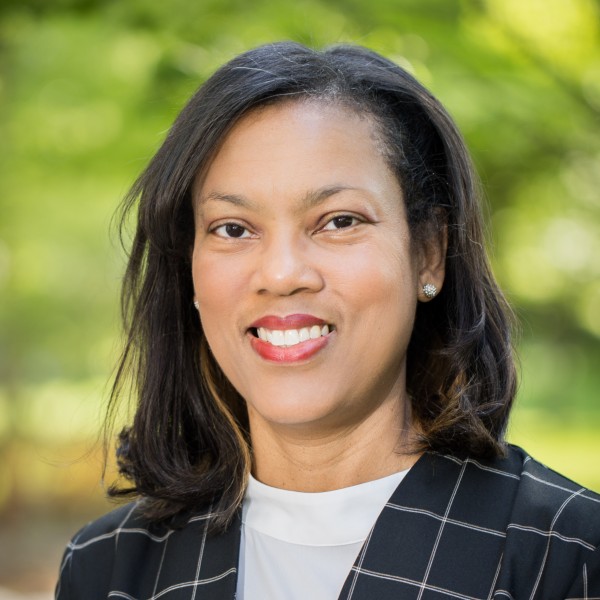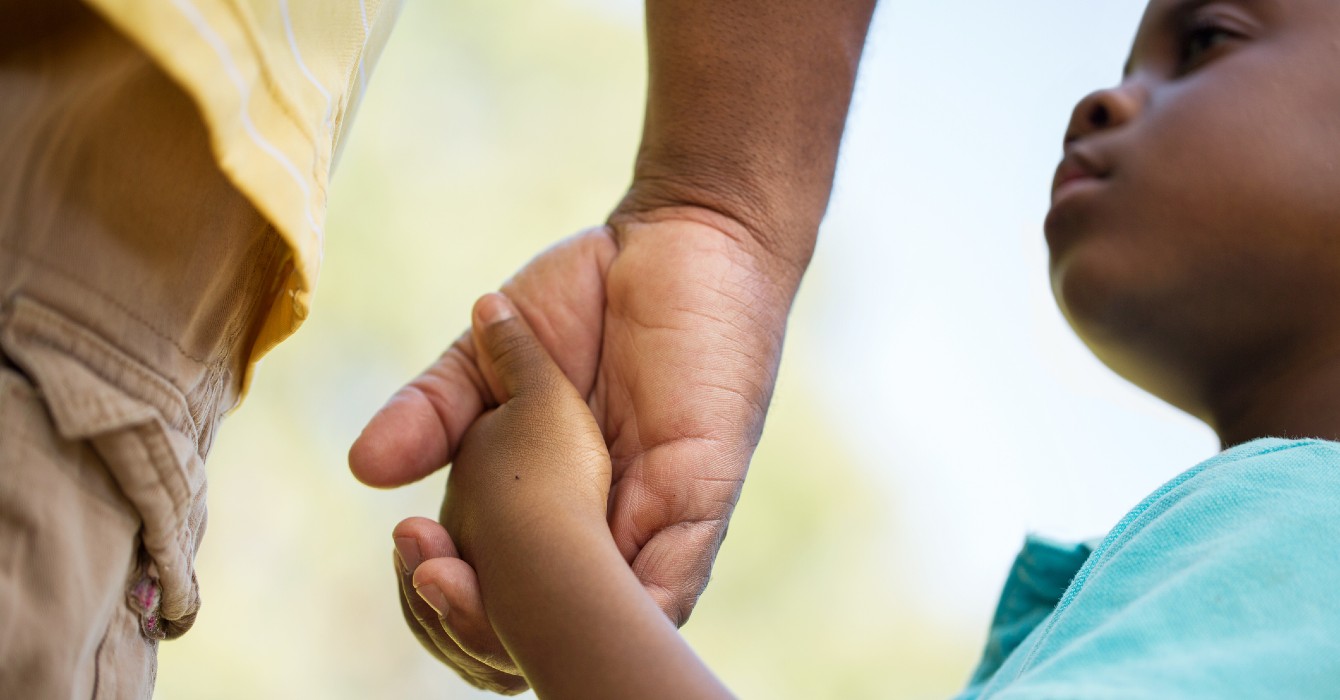Memorial Day is the designated holiday to honor and reflect on those who died during their military service. As a veteran who grew up surrounded by stories of service, I always find this holiday sobering.
What first comes to mind is the giant bronze plaque in the hallway on the second floor of my high school -- Lew Wallace High School in Gary, Indiana -- that memorialized graduates lost during World War II.
And then I think of the many veterans who helped form me. My freshman year physical education coach was a man named Clarence Day, a World War II U.S. Navy veteran who was held for three years as a prisoner of war after his ship was sunk in battle. On my paper route, I used to chat with William Robinson, an older Black man who served on an aircraft carrier in the Pacific during World War II.
I reflect on my own family’s legacy: my cousin who served in the Army and landed on a Normandy beach on the fourth day of the D-Day invasion; my uncle who served in the Marine Corps during the Korean War; my father, who served in the Air Force during the Vietnam War. In fact, I trace my family history back to the colonial era, and each generation has served in the U.S. military.
I am a Navy veteran who served during the first Gulf War in 1990 and 1991. Remembering the ones who served before me is not a duty or a chore. It is a part of who I am.
Yet something feels a bit different this year, as I reflect on the events between May 2020 and May 2021. From the tragic killing of George Floyd to the tumult at the Capitol on Jan. 6 to all the precious lives lost to COVID-19, it has been almost overwhelming, but for my faith.
I am a veteran, and I’m also a Black man in America who has observed the asymmetrical war waged in our society on Black lives -- which includes a disregard for Black service and sacrifice.
Many Black veterans joined the military not only to serve this country but to earn equal respect for themselves and for the Black community. That the descendants of enslaved people have evolved to love the country that treated them inhumanely illustrates the complexity of Black patriotism. Every generation of Black veterans has grappled with reconciling love of country with disdain for the country’s cultural and political practices.
In this season of racial reckoning, we should take time to remember that service and sacrifice to this country is defined by many lives, including the lives of Black veterans.
My own adventure began on a sunny Sunday in June 1984 when I arrived at Naval Training Center in San Diego, California. A gray bus transported me and the other new recruits to the building where we would begin processing -- a comedic and bizarre series of events that would culminate in new daily routines, like crowding with 80 other guys to shower and shave.
On day three, we were marched to a swimming pool for our water survival test. For this I had to climb a 10-foot tower and jump into a 12-foot-deep pool, simulating an abandon ship drill. There was one problem: I didn’t know how to swim.
That predicament seems silly now -- joining the Navy and not knowing how to swim -- but as I look back on that moment, I realize that God had placed me there for a reason.
Tall and skinny, I climbed the tower wearing trunks that were almost falling off. I reached the platform and tentatively walked forward, shivering with fear. As my toes lined up with the edge of the platform, I closed my eyes and crossed my arms over my chest as the instructor told me to do.
Then he yelled, “Jump!” I paused, inhaled deeply and moved my left foot forward, stepping into the unknown. God had taught me my first lesson about faith by placing me face to face with my fear.
That moment on the tower shifted me from the kid who was wide-eyed, reveling in the stories from Coach Day, Mr. Robinson and my dad, to the young man who was on his own path.
My experience on the tower would serve as a metaphor for much tougher situations I’d face later in life -- stepping out, not knowing what’s next, but believing that God was with me.
That lesson of faith brings me back to the names on the memorial plaque at Lew Wallace, because I’m reminded of the faith that is exercised in the sacrifice of those who died during their service.
The definition of American patriotism is not complete without the inclusion of sacrifice by Black veterans. Black people have served in the military honorably; however, their valor is hardly included in our national memory. Often, long after Black veterans have served or died, stories will surface of their selflessness; far too rarely, they will be honored.
This happened in the 1990s when then-President Clinton awarded the Medal of Honor to Black veterans from World War II -- over 40 years after their service. But among the 25 veterans who have been awarded the Medal of Honor for the Global War on Terrorism, there are no Black recipients, according to the Congressional Medal of Honor Society.
This year, there is one Black veteran whose story I am reflecting on, not because I knew him, but because I can’t stop thinking about what he did.
Sgt. 1st Class Alwyn C. Cashe was awarded the Silver Star for his sacrifice during the Iraq War in 2005. With his uniform soaked in fuel after a roadside bomb tore through his Bradley armored vehicle, Cashe worked through flames to extricate six fellow soldiers, sustaining burns over 72% of his body. He later died of his injuries.
Supporters, led by his commanding officer, lobbied for nearly 15 years for Cashe’s award to be upgraded to the Medal of Honor -- which would make him the first African American to receive the honor for actions in the wars in Iraq and Afghanistan.
Then-President Trump signed the legislation in December 2020 awarding Cashe the Medal of Honor, but his family has yet to receive an official ceremony. Perhaps President Biden will take the opportunity to award the medal to Cashe’s family during this year’s Memorial Day holiday.
The veterans who helped form me -- Clarence Day, William Robinson and my dad, Reginald Garner -- are all gone now. I am left honoring their memory.
This Memorial Day, I choose also to honor Sgt. 1st Class Alwyn C. Cashe -- and all the other veterans who lost their lives on the altar of freedom.
The appropriate memorialization of Black veterans is one important step toward ensuring that this country lives up to its obligation of racial equality and brings an end to its warfare against Black lives.









